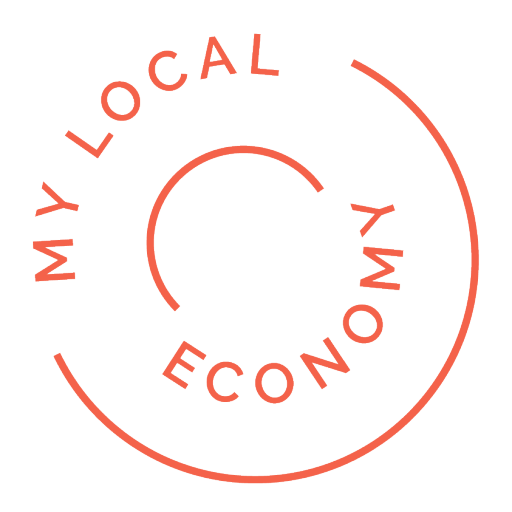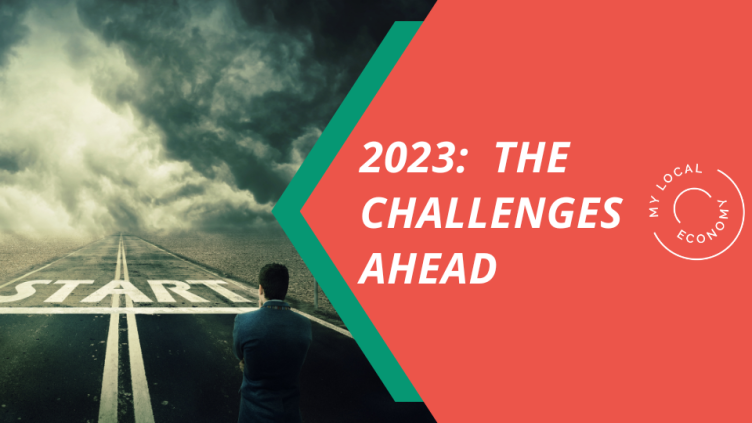2022: in brief
For the local economic development community – 2022 was another challenging year. The global and national events and issues included the Ukraine War, and its impacts; the emergence of high inflation, energy scarcity and costs, the cost of living crisis, critical strains on public and health services, and the labour shortage in the UK. Then there was the crisis in UK politics and the almost daily events of Downing Street, and the fact that we have had 3 prime ministers.
One of the biggest practical issues for local economic development was the initial uncertainty over institutions and devolution, and the UK Shared Prosperity Fund (UKSPF). And then when UKSPF was launched it was clear that the resources involved were much lower than the EU structural fund allocations and existing local fund allocations (Towns Fund, Levelling Up Funds etc). Despite this, I have been continually impressed by the professionalism and commitment of many public sector workers and officials.
Personally – 2022 was a good year for me, and for my consultancy Mylocaleconomy. We did an interesting and engaging range of consultancy projects on inward investment, skills, renewable energy, life sciences commercialisation and entrepreneurship, and housing retrofit. We began a project in November looking at a new way of configuring an economic development strategy – along the lines of Sustainable Development Goals but driven more by missions that integrate economy, environment, and social equity and welfare. This latter project is still underway. As ever, we’ve been involved in a diverse mix of projects – but all using our skills as applied economists and strategists with a great knowledge of public policy, practical management and delivery, and stretched our enquiring minds quite far in some cases!
Top articles in 2022. These were my articles with the highest numbers of views on LinkedIn in 2022:
- Restructuring your economic development organisation? some early tips…
- Lessons from the trailblazer Local Skills Improvement Plans
- Rethinking enterprise support in England – top 10 tips and observations
- Local Investment Plans – approaches and advice
- Levelling Up – we’ve just started, don’t abandon this policy
- Monitoring your local economy during an economic crisis
2023 promises to be a very challenging year
Local economic development in the UK faces a number of big hurdles and big issues to wrestle with:
- The continued global uncertainties – the Ukraine war and wider instabilities in geopolitics, security and markets; Covid recovery, inflation, and fuel and energy supply and costs
- The UK economy is particularly vulnerable. Energy costs and inflation are severe. Despite being a net exporter of energy, the UK hasn’t the gas storage facilities to deal with spikes in prices. Covid and Brexit have added costs to domestic production, imports, and undermined the stability of the company and exporting base.
- Even though the UK economy is likely headed for recession, there is a labour supply shortage. A mixture of Covid, long-term illness (not helped by the NHS crisis), and restrictions on immigration have lead to a peak in unfilled vacancies and labour demand.
- Funding shortfall for LED: Some of the institutional issues (LEPs, combined authorities and other devolved forms in England) have been settled, the new funding settlement has left many localities short of funds and planning cuts to services. UKSPF allocations do not match the resources that localities accessed through European Structural Funds.
How do we steel ourselves for a challenging year, and prepare ourselves for the next 3-5 years?
At moments like these, I tend to remind myself of a few key principles for local economic development:
- Economic development matters, and the economic development function is necessary to build Prosperous, Inclusive Communities that are Sustainable
- Local economic development and regeneration works. There are many large-scale impact studies that show this. Some initiatives work better than others. However, there is no single recipe for success. ED professionals should be informed about what has worked, in what circumstances, in the past – to guide their actions.
- Dealing with change and uncertainty is part and parcel of working in local economic development
- Having a focused mission is important. It’s all too easy to follow the funding, and the latest government policy announcement, or to repeat what’s been done before. What’s the core mission, the key outcomes and objectives that you seek? Economic development organisations, like most things in life, thrive when they have a focused mission.
- Form should follow function… but it rarely does. In an ideal world, we would firstly design our institutions and boundaries to deliver our economic development objectives and the methods and tools we have selected, but economic development organisations are political animals, with baggage, context and boundaries. We will have to continue to retrofit and adapt structures and approaches.
- Accepting risk and failure is necessary to embrace success. Governmental organisations can be incredibly risk averse, and expect everything to be successful. This is unrealistic, and you would never learn anything from practice or experience if you were too risk averse to try to deliver something. An evaluation might find that a pilot project wasn’t perfect – that’s fine, what can we learn from that experience and apply down the line?
- Successful policy and practice is built on experience, and is iterative – it develops and gets better over time (as long as the commitment to the broad policy goals remains in place over the long-term). Creating the right procedures and systems can encourage innovation and delivery, whilt doing the due diligence to give it the best chance of success.
- “Self-discovery” is the key – and this involves the trial and error, and evolution of policies, strategies, capacities and delivery.
- Retain core capacities and competencies. We need to carefully identify and continue in some form – the capacities and capabilities that we will need to scale up if there are further threats, or new resources emerge.
Finally – successful economic development takes decades and is a job never done. Economic development organisations and teams are adhocracies. The complex, challenging task that they face means that they have to invent new solutions constantly. To be effective, this means that they need to become learning organisations and internalise research and evaluation more. The more successful you are at it – the more you are expected to do.
What should we be thinking about in terms of the development of domestic UK policy and the next general election?
I regard the current government as a dead duck in terms of its ability to constructively effect any further changes in local economic policy, and the development of any meaningful policies – simply for the reason that we have less than two years until a general election, and is mired in fire fighting and trying to maintain some semblance of political stability. It would take 6 months to cobble together a policy, and 12 months to disburse any funds or changes…. leaving a miniscule window for change.
Time would be well spent positioning for whatever form of government is in place after the UK General Election. Reading the Labour Party proposals (A New Britain) there is scope for a massive boost to local economic development, greater devolution of powers, and greater coordination of national and local policies (I am also writing an article about this — out soon). The localities with ambitious plans matched with decent practical and delivery planning of how to deliver them – will be the front runners in local economic development. This involves being quite audacious in thinking – what is the art of the possible, rather what is possible from a £20m competitive Towns Fund grant?
This means ambition, creative thinking, but also the hard work of practical design and appraisal to put out plans and ideas that are well founded, designed, and stand a good chance of success. Green Book guidance is key here – in terms of project and programme design and public finance appraisal. The Green Book is a method of developing projects and programmes which have been well thought through, stand a good chance of delivering the outcomes and impacts sought, and have the required resources to deliver, and reasonable value for money. Imagine having some great local programmes to launch with a new national government – and they are investment ready, and will pass the public finance test…. you are reducing the reasons for national government to say “no.”
The big issues that won’t go away – in the UK these are – overall low rates of economic growth, climate change, productivity decline, the need to put more ‘D’ (commercial development and delivery) in R&D, low pay, the polarisation of the workforce and lack of decent services or routes for young people who don’t go to university, continued regional disparities, inequalities, poverty, and the need to increase labour and income mobility across society. Wrapping these all up – we need economic and public policies on steroids. The only way we can get out of our problems (many of theme self-imposed, or through policy neglect) – is to have really good economic and public policies that build wealth, share it equitably, and meet the climate change challenge head-on.
We have to start tackling these issues with some serious policies and long-term commitments. The time of magical thinking – that some esoteric concepts such as sovereignty or British values – will deliver us a better standard of living – is over. Hope (or wishful thinking) is not a strategy for change or a meaningful basis for public policy. We need hard policies that will deliver.
My 2023
What’s my 2023 going to be like? well here’s a few things on my agenda already:
- Climate change – there’s a lot of work emerging on climate change transition and sustainability
- Skills – And more work coming through on skills – some linked to green skills
- Delivery plans – Clients increasingly want a lot of hands-on assistance in active prioritisation, designing frameworks for decision-making, and help with developing delivery plans
- Understanding local economic development – I’m actively working on a book that aims to lay out the fundamentals for practitioners and policy makers. I will be releasing beta version drafts through the usual outlets, and incorporating your thoughts and feedback into final outputs
- Mentoring – I’m exploring how I can help people working in economic development and public policy. Provide some mentoring support, advice, someone to talk to and discuss work and career challenges and progress. And I get to find out about more about the work people are doing on the ground.
About Glenn
Glenn runs his own consultancy, Mylocaleconomy. We help local leaders translate their economic ambitions into winning advocacy and solutions that get funded. We work all over the UK – from Scotland to Wales, Bristol, Teeside, North East England, Gloucestershire, London, Cambridgeshire and Sussex.
Get in touch via LinkedIn messaging or the contact form on our website.

